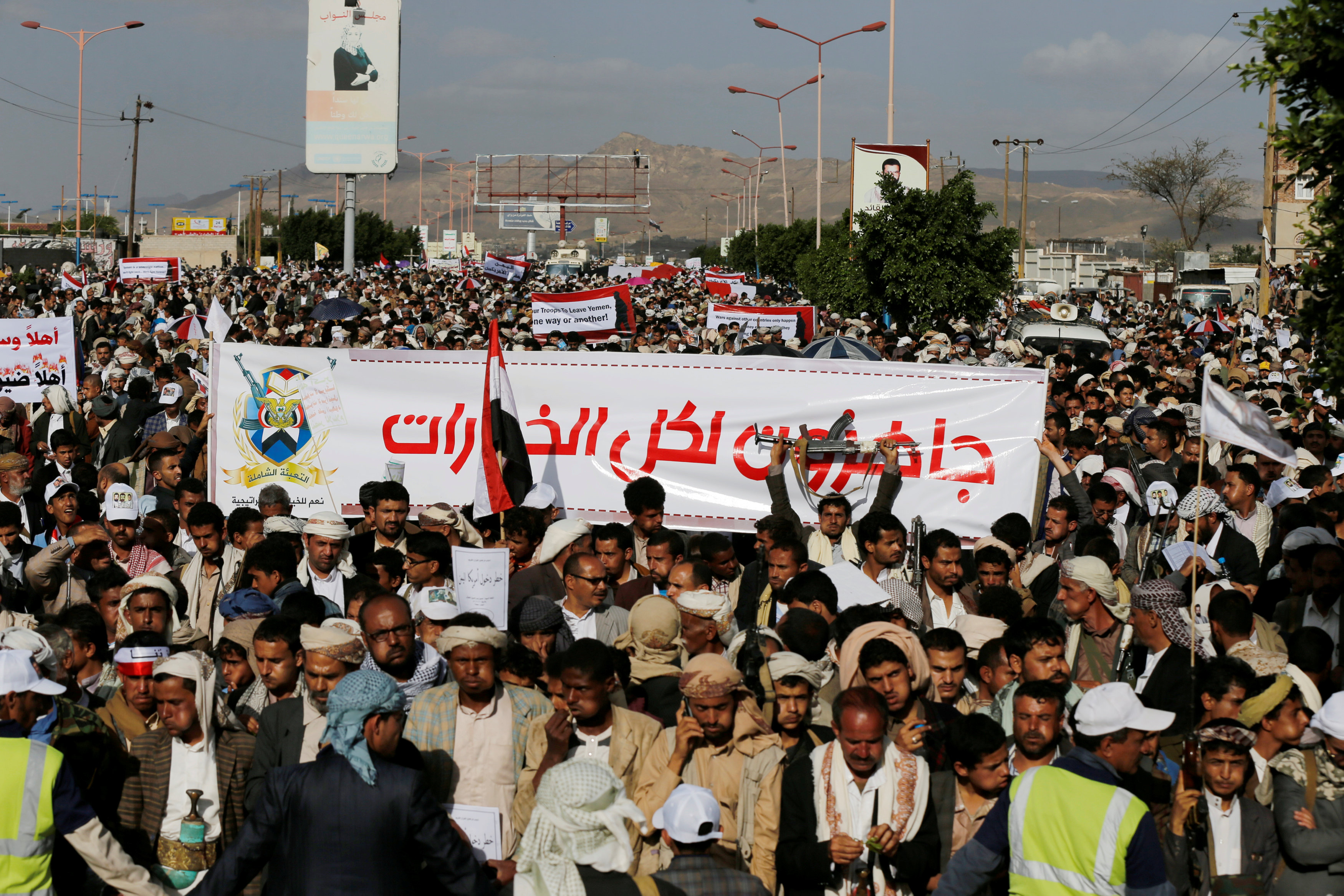
By Phil Stewart
WASHINGTON (Reuters) – The U.S. military launched cruise missile strikes on Thursday to knock out three coastal radar sites in areas of Yemen controlled by Iran-aligned Houthi forces, retaliating after failed missile attacks this week on a U.S. Navy destroyer, U.S. officials said.
The strikes, authorized by President Barack Obama, represent Washington’s first direct military action against suspected Houthi-controlled targets in Yemen’s conflict.
Still, the Pentagon appeared to stress the limited nature of the strikes, aimed at radar that enabled the launch of at least three missiles against the U.S. Navy ship USS Mason on Sunday and Wednesday.
“These limited self-defense strikes were conducted to protect our personnel, our ships and our freedom of navigation,” Pentagon spokesman Peter Cook said.
U.S. officials, speaking on condition of anonymity, said U.S. Navy destroyer USS Nitze launched the Tomahawk cruise missiles around 4 a.m. (0100 GMT).
“These radars were active during previous attacks and attempted attacks on ships in the Red Sea,” including the USS Mason, one of the officials said, adding the targeted radar sites were in remote areas where the risk of civilian casualties was low.
The official identified the areas in Yemen where the radar were located as near Ras Isa, north of Mukha and near Khoka.
Shipping sources told Reuters sites were hit in the Dhubab district of Taiz province, a remote area overlooking the Bab al-Mandab Straight known for fishing and smuggling.
SAFE PASSAGE
The failed missile attacks on the USS Mason appeared to be part of the reaction to a suspected Saudi-led strike on mourners gathered in Yemen’s Houthi-held capital Sanaa.
The Houthis, who are battling the internationally-recognized government of Yemen President Abd Rabbu Mansour al-Hadi, denied any involvement in Sunday’s attempt to strike the USS Mason.
On Thursday, the Houthis reiterated a denial that they carried out the strikes and said they did not come from areas under their control, a news agency controlled by the group reported a military source as saying.
The allegations were false pretexts to “escalate aggression and cover up crimes committed against the Yemeni people”, the source said.
U.S. officials have told Reuters there were growing indications that Houthi fighters, or forces aligned with them, were responsible for Sunday’s attempted strikes, in which two coastal cruise missiles designed to target ships failed to reach the destroyer.
The missile incidents, along with an Oct. 1 strike on a vessel from the United Arab Emirates, add to questions about safety of passage for military ships around the Bab al-Mandab Strait, one of the world’s busiest shipping routes.
The Houthis, who are allied to Hadi’s predecessor Ali Abdullah Saleh, have the support of many army units and control most of the north, including the capital Sanaa.
The Pentagon warned against any future attacks.

A still image from video released October 13, 2016 shows U.S. military launching cruise missile strikes from U.S. Navy destroyer USS Nitze to knock out three coastal radar sites in areas of Yemen controlled by Houthi forces. REUTERS/DIVIDS via Reuters TV
“The United States will respond to any further threat to our ships and commercial traffic, as appropriate,” Cook said.
The United Arab Emirates (UAE), a leading member of a Saudi-led Arab coalition fighting to end Houthi control, denounced the attacks on the Mason as an attempt to target the freedom of navigation and to inflame the regional situation.
Michael Knights, an expert on Yemen’s conflict at the Washington Institute for Near East Policy, suggested the Houthis, fighters from a Shi’ite sect, could be becoming more militarily aligned with groups such as Lebanon’s Shi’ite militant group Hezbollah.
“Targeting U.S. warships is a sign that the Houthis have decided to join the axis of resistance that currently includes Lebanese Hezbollah, Hamas and Iran,” Knight said.
Although Thursday’s strikes against the radar aim to undercut the ability to track and target U.S. ships, the Houthis are still believed to possess missiles that could pose a threat.
Reuters has reported that the coastal defense cruise missiles used against the USS Mason had considerable range, fuelling concern about the kind of weaponry the Houthis appear willing to employ and some of which, U.S. officials believe, is supplied by Iran.
One of the missiles fired on Sunday traveled more than two dozen nautical miles before splashing into the Red Sea off Yemen’s southern coast, one U.S. official said.
(Reporting by Phil Stewart, Mohammed Ghobari, Katie Paul; Editing by William Maclean and Janet Lawrence)













